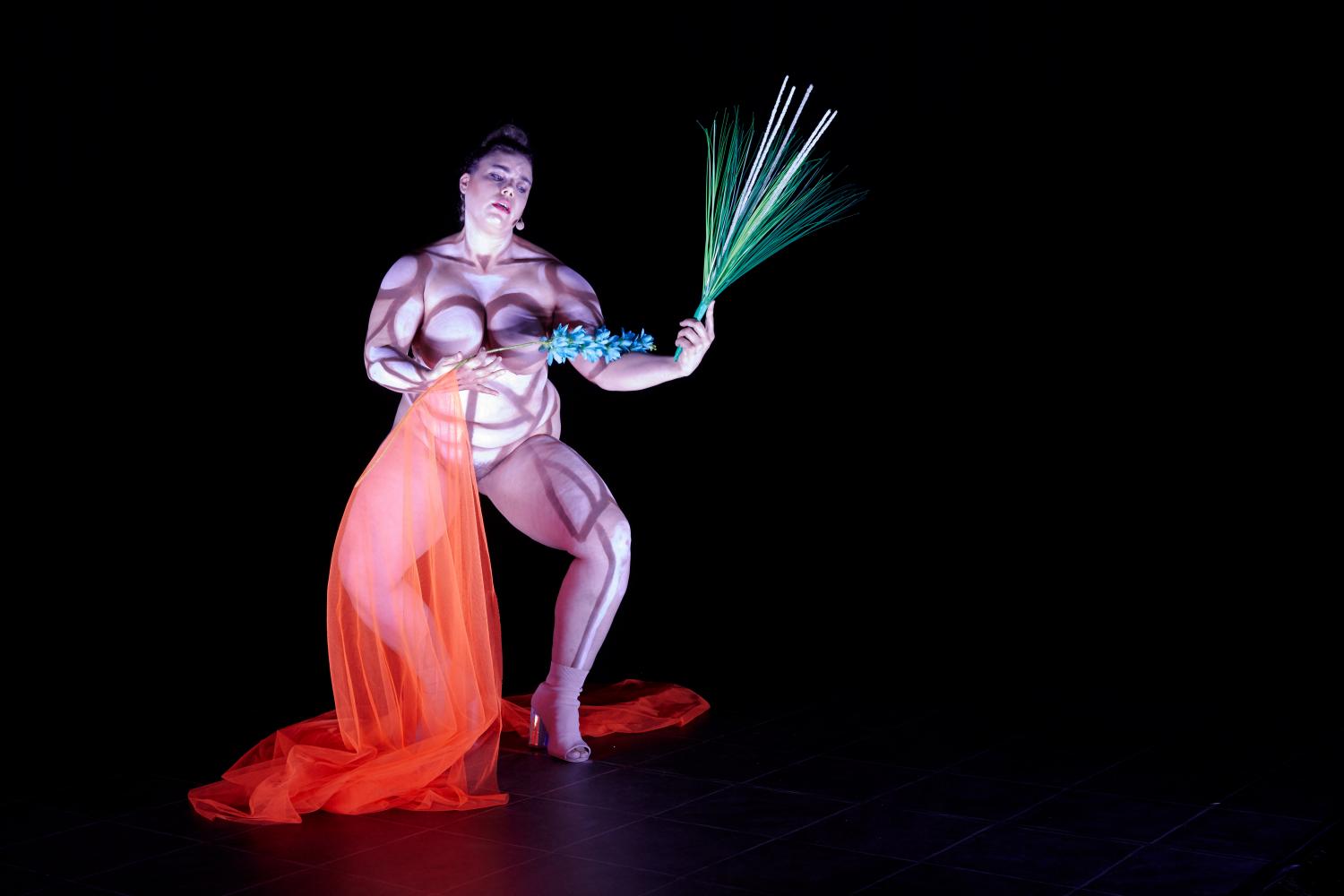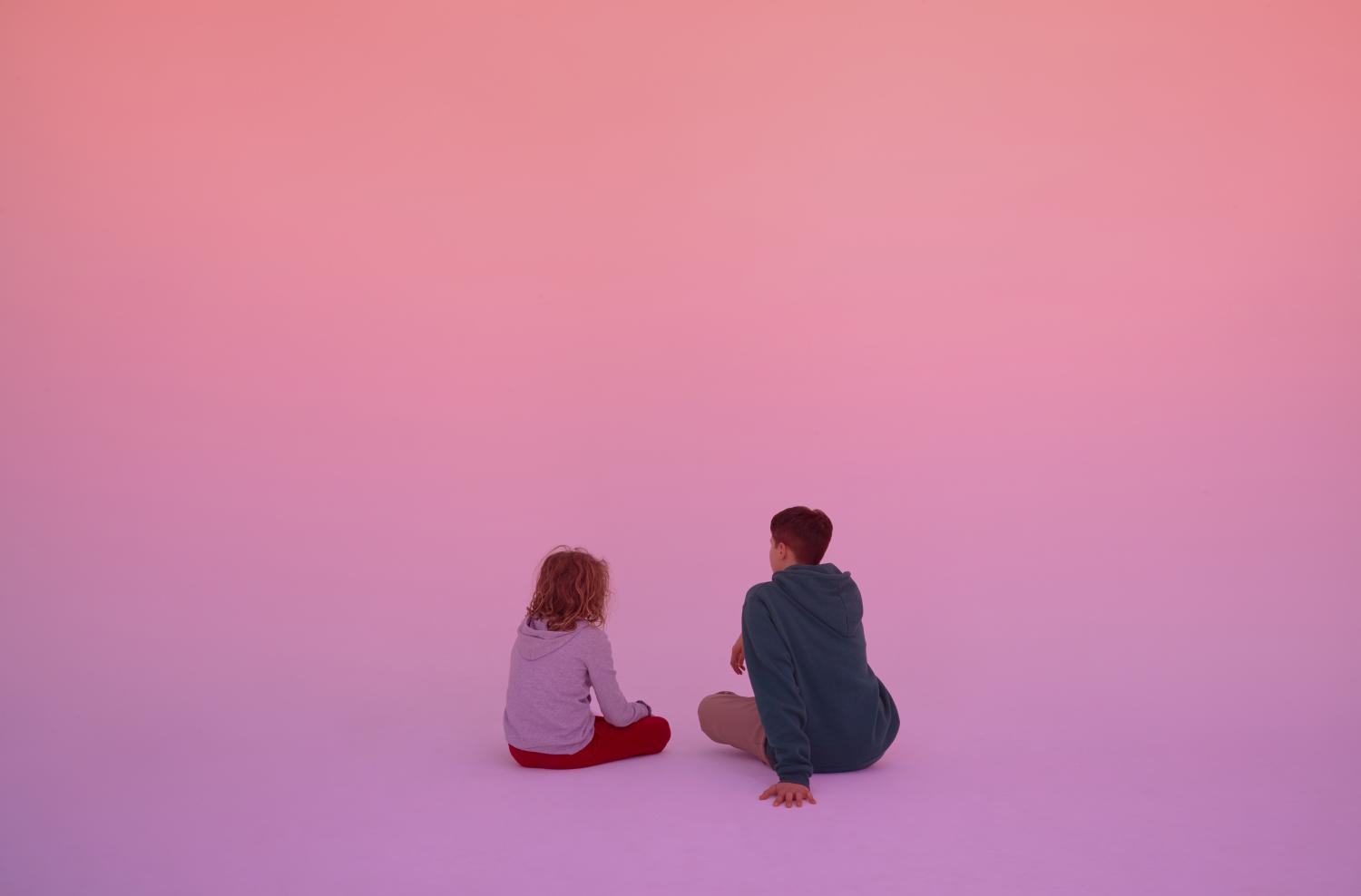The first virtual theatre festival that I participated in was "Isra-Drama: International Exposure Of Israeli Theatre 2020". I had never been to Israel and I still have not been to Israel.
This past June, I participated in yet another festival I've never been to in-person: Germany's Impulse Theatre Festival. The festival usually takes place in three cities -- Cologne, Dusseldorf and Mulheim an der Ruhr, and has three main parts: Showcase (performances), Academy (workshops, panels and lectures) and City Project.
Most of the productions in the showcase were performed in venues with live audiences and streamed live for viewers around the world. A few were completely online. I was able to watch four performances in the showcase: Playback (in-theatre and live-streamed); Body Of Knowledge (At Home) (WhatsApp calls and video conference); Love Me, Tender: Solo For Future Feminism (in-theatre and livestreamed); and The History Of The Federal Republic Of Germany As Told By Fehler Kuti Und Die Polizei (livestreamed and video-on-demand).
Here are my quick reviews of these shows.

(Photo: Daniel Michael Shaw)
Playback
Clara Reiner and Joana Tischkau
Joana Tischkau and her fellow performers should be applauded for their precise lip-syncing of numerous pop songs and interviews of German and American pop music icons between the 70s and 90s. Most of the audience members watching the livestream and commenting seemed to enjoy going down memory lane. During the post-show Q&A, most people asked enthusiastic questions about the music. Music is that powerful and uniting. But if you think every human creation and interaction should be viewed through the lens of Critical Race Theory, maybe you'll find the show's critique of racism in the music industry and its intention to expose the "White German Desire For Black Embodiment", I don't know, radical? I think the obvious truth is that these artists -- Michael Jackson, Mariah Carey, Whitney Houston, Nina Hagen, to name a few -- whose works and interviews the cast lip-sync to and created copies of are more than just their skin colours. In their effort to impose meaning and intention into our skin colour, Reiner and Tischkau reveal themselves to have a reductive and cynical understanding of art, history, and how humans create, invent and inspire one another.

(Photo: Julian Baumann)
The History Of The Federal Republic Of Germany As Told By Fehler Kuti Und Die Polizei
Julian Warner
This was the last show I saw at Impulse Theatre Festival and it only confirmed my opinion about the programming: it's safe. The shows with political messages in the festival are safe and predictable. Perhaps it's because Germany is such a free society, one in which its citizens need not fear imprisonment for political expression, that their political art -- or at least the works shown at this festival -- lack a sense of danger or urgency.
Not that artists need to place themselves in danger for their political message to be effective but maybe in a free society, there's more room for political expression to be artistic and performative. Presented as a concert, the show features a band dressed in uniform with its frontman (Julian Warner, aka Fehler Kuti) singing and making political declarations, repeating familiar slogans and academic terms that have made their ways into the everyday vocabulary of the people of a certain social and cultural class. Sometimes he sounds like a racist, xenophobic policeman, sometimes like his ideological opposite. In a way, it feels like watching modern-day online activism -- heavy on sloganeering, light on desire to communicate. Sometimes words, phrases and sentences in large, bold, colourful letters popped up and glided across the screen, the most energetic element of a show that's more style than substance.

(Photo: Yushiko Kusano)
Hate Me, Tender: Solo For Future Feminism
Teresa Vittucci
There's nothing safe about performing naked on stage in front of a live audience and having that performance being livestreamed to people all over the world. Teresa Vittucci is undoubtedly a daring performer. She's also funny, charismatic and engaging. The woman at the centre of the show, though, is less Vittucci herself and more the Virgin Mary. In the post-show Q&A session, the artist told the audience that she wanted to liberate and empower the Virgin Mary. Throughout the show, Vittucci toys with religious images, subverting the idea of religious purity by treating her body in ways that are less precious and more humorous. She inserts and removes a sheer red fabric from her vagina; she flogs herself with leaves; she turns her stretchy skin-colour boot into a stand-in for the vagina, inserting her hands into it, expanding it. She tells stories, too -- funny ones about her religious mother that reveal the tension in their relationship caused by differences in beliefs. The show is unapologetically feminist but there's nothing surprising about a contemporary artist who sees Western religions as oppressive and wants to free a religious icon from her cage of purity. In fact, it's de rigueur. And what's so exciting about that?

(Photo: Pier Carthew)
Body Of Knowledge (At Home)
Samara Hersch
The definition of performance and the limits of personal boundaries were definitely tested during this show. Is it a performance when you're just talking to the performers on WhatsApp? Is conversation performance? Virtual theatre is already pretty invasive, so how do I feel about being part of this show on such a personal and intimate level? The at-home version of this successful show brings audiences in contact with a group of Australian teenagers. Each audience member receives three (or was it four?) phone calls from different performers. Each phone call lasts about five minutes. Strangers to one another, we exchanged pleasantries, personal stories, advice, questions. The subjects we touched on and that these teenagers chose to share were sometimes deeply personal. The personal and private nature of the format made me feel like I was constantly teetering on the edge of transgression. As the adult in the conversation, what am I responsible for? But sometimes, it was the teenager who took charge, asking me whether the experience wasn't too much for me. The show also made the effort to share as much sensory experience with the participants as possible. There was a package to be opened (some received this in the mail while others were sent a digital version) and a story about our personal object to be shared. Then, everyone came back together in the video conference where we listened to a musical performance and to the teenagers sharing their experience of the conversations they just had with us. These teenagers were not only performers and our guides, but they also sought our advice, opinions and perspectives. We were participants. But before we could be participants, we had to be the audience and return to the root of the word -- to hear, to listen. These calls were about learning to be an audience to one another, which is part of every performance.
